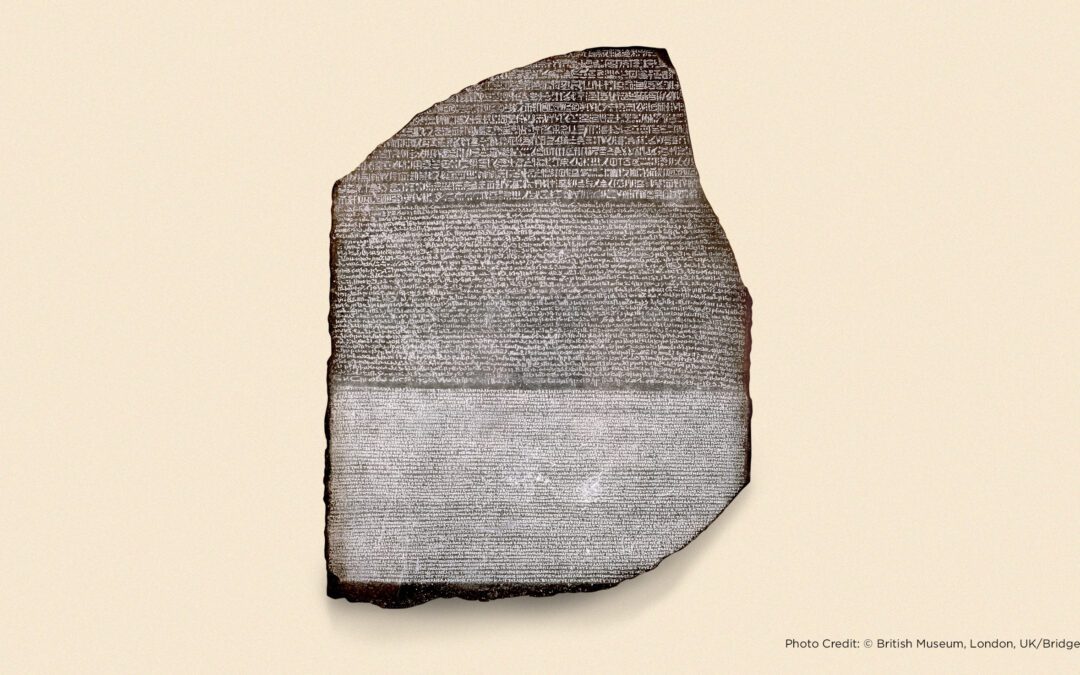Archaeology and the Bible?
Archaeology is always breaking new ground and, in spite of its antiquities, making new news. This dry as dust occupation has got to be tedious and boring to the point of tears, as boring as another day in the life of Methuselah. Nothing is duller than stones and dirt. And like a mole in the ground sifting through miles of dirt searching for little remnants of teeth and bones, pottery, arrow heads, relics of cornerstones, and maybe a clay tablet or two, it is about as exciting as a mouthful of dusty crackers. However, when Mr. Dig hits the dirt, everything changes. What could be more exciting than the uncovering of Pompeii, Herculaneum, and Troy?
Like one witty wife said before a large group of her peers, “There is one major advantage of being married to an archaeologist; the older you get, the more fascinating you become to your husband.” Therefore, encourage your daughters to marry archaeologists.
Much of ancient history is a lost world, as mysterious as Jules Verne’s underground world, “Journey to the Center of the Earth.” It is dust upon dust, an empire built upon the bones, blood, and treasure of a previous empire. Ancient history is filled with unanswerable questions, but archaeology does remove a lot of its dust and din, and like detectives using forensic evidence, they give us some definitive answers to the who, what, where, and when of the ancient past.
What most excites me about two hundred years of Biblical archaeology is that it has proven the exact opposite of what many liberal Bible scholars taught, thought, and hoped it would: it has confirmed their belief that the Bible is a man-made book filled with legends, a book of mythology no more worthy of reverence than the mythologies of Zeus, Thor, or Hercules. Liberal magazines such as Time and Newsweek, which are currently struggling, have prominently featured their “I hae ma doots” columnists on their front cover stories. Their pre-archaeological criticisms have slithered away into the duty tombs of Hoopla.
While the impressive findings of Biblical archaeology do not prove the Bible to be the Word of God, they align perfectly with the facts of recorded history. It’s a science that gives millions of Bible readers further confidence that the book they read each day and take to their churches each Sunday is an accurate historical book. The rest is revelational knowledge.
Modern archaeology will never be able to prove whether George Washington chopped down a cherry tree or threw a coin across the Rappahannock River, but it can prove that he lived in Rappahannock in a spacious eight-room home, confirming that his family was well-off for its time. However, it doesn’t provide evidence for many other historical claims about George Washington. Likewise, archaeology changes nothing regarding our faith in the deity of Jesus Christ as our savior from sin. His life is a historical fact more established than the belief that the Roman Emperor Tiberius was ever an emperor. Confirmation of the facts is all you can expect from archaeology.
Ten non-Christian sources have confirmed over thirty historical figures in the New Testament, and archaeologists have discovered 25,000 Biblical sites that have not refuted a single scripture.
Archaeology is an important subject for Christians because our faith is not one of cherished myths, but one based on bushels of facts and events. The events of Gath, Gaza, and Goliath, as well as those of Jericho, Jerusalem, and Jesus, including his death, burial, and resurrection, are either factual or mythical. There is no middle ground here. No Twinkie defense here. Let us not assume that all archaeological scholars are fair and objective in their interpretation of the facts, despite their importance. Some are uncompromising ideologues who have been known to tamper with the facts. Some write articles and go on TV, making public announcements that later prove to be Orwellian lies. As usual, the liberal media does not follow up with the plain truth. Archaeology is not an infallible science; a lot of it is mere speculation. I put more faith in the Bible itself than in the interpretations of archaeologists. So far, that assumption has proven to be a wise one.
Authentic Christianity is based on the Bible, the God-breathed revelation of the Holy Spirit. While archaeology can enhance our comprehension of various Bible texts, it does not establish our faith. Neither archaeology, councils, nor synods are our final authorities.
The Bible constitutes the finest and most dependable history in the entire ancient world. Its accuracy puts the burden of proof squarely on those skeptics who endlessly seek to cast doubt on its authority.
“Glory, Glory Hallelujah, the truth is marching on.”
That’s something to think about!
Be Blessed
Dr. Robert Bryant

